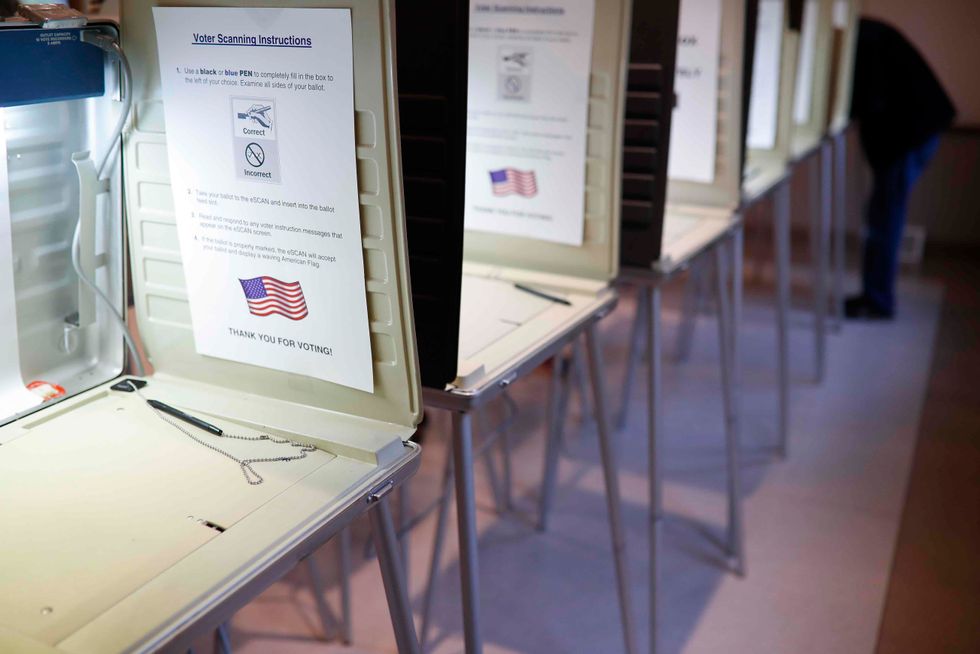
A lone voter fills out a ballot alongside a row of empty booths at a polling station in the Terrace Park Community Building on Election Day, Tuesday, Nov. 8, 2016, in Cincinnati. (AP Photo/John Minchillo)

This year, perhaps more so than any other, there has been a lot of chatter about election results potentially being compromised.
But on Tuesday, just hours before Americans went to elect their next president, one cybersecrity expert told TheBlaze that he's less worried about adversaries hacking or changing individual votes and more concerned about "disinformation campaigns" aimed at undermining the legitimacy of America's electoral process.
"It comes to a sense of integrity," Scott White, director of the cybersecurity program at George Washington University, said.
"If all of a sudden I'm transmitting information that you're collecting that's inaccurate, and then I have to turn around and go 'oh wait minute. I'll have to send it to you a different way. It was incorrect the way you posted it.' That type of confusion leads people to believe there's a greater conspiracy or that there's a flawed system," White said, referring to local municipalities sending their vote tallies to state officials.
White explained that when voters see one flaw in the system, they are then more likely to ask themselves if there could be other errors.
But, White continued, "We have to be careful that an adversary is not beginning a disinformation campaign, calling into question the election."
That is exactly what adversaries of the U.S., "especially Russia," want, White said: to create confusion on the night of the election.
"Russia's in real trouble. Economically, politically, they're in real trouble. And one of the things that [Russian President Vladimir] Putin has been trying to do for some time is hold up the Russian system being better than that of the West, and specifically, the United States," White said.
"So if they can begin some type of disinformation campaign that calls into question the democratic system of the United States, domestically he [Putin] gets great benefit, domestically, for doing something like that," White added. "That's what I'm more concerned about."
As state and local officials faced mounting pressure to safeguard their election systems from potential cyberattacks in the days leading up to the election, the Department of Homeland Security took the unusual step of helping those states conduct "cyber hygiene" tests.
CNN reported in October that at least 18 states up to that point had sought federal assistance while working to secure voter systems.
White told TheBlaze it would be very difficult for adversaries to hack the U.S. election, noting they would need to penetrate voting machines individually, a task that would likely prove to be very labor intensive.